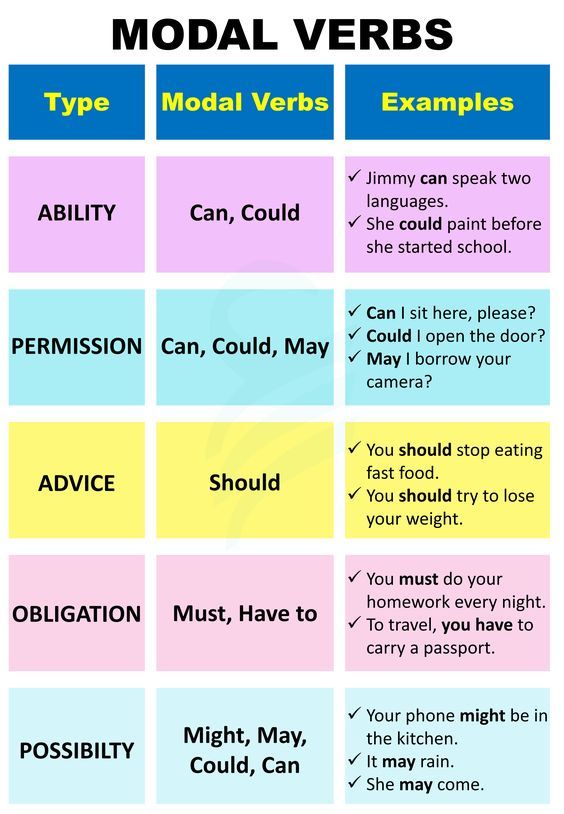Modal Verbs
ENGLISH GRAMMAR & VOCABULARY


Introduction to Modal Verbs
Modal verbs are a type of auxiliary verb that express a range of meanings such as possibility, necessity, ability, permission, and obligation. They are used to modify the main verb in a sentence and provide additional information about the action or state described. In this lesson, we will explore the different modal verbs, their uses, and provide examples to help you understand their functions.
Examples of Modal Verbs
Here are some common modal verbs:
Can
Could
May
Might
Must
Shall
Should
Will
Would
Uses of Modal Verbs
1. Ability: Modal verbs can be used to express ability or inability to do something. For example:
- She can speak three languages fluently.
- I could swim when I was younger.
2. Permission: Modal verbs can also be used to ask for or give permission. For example:
- May I borrow your pen, please?
- You can go to the party if you finish your homework.
3. Obligation: Modal verbs can express obligations or duties. For example:
- Students must wear a uniform to school.
- You should apologize for your behavior.
4. Possibility: Modal verbs can indicate possibilities or probabilities. For example:
- It might rain later, so bring an umbrella.
- She may be late for the meeting.
5. Advice: Modal verbs can be used to give advice or make recommendations. For example:
- You should exercise regularly for good health.
- You ought to try the new restaurant in town.
Practice Test
(copy/paste the sentences to an email with your answers and send them to info@haotraining.com)
Now, let's put your knowledge of modal verbs to the test. Below are 20 sentences for you to practice using modal verbs correctly. Choose the appropriate modal verb from the given options and complete each sentence.
She ________ play the piano when she was younger.
________ I go to the party tonight?
You ________ take a break if you're feeling tired.
He ________ be at the meeting tomorrow.
Students ________ wear a school uniform.
________ you pass me the salt, please?
I ________ help you with your homework if you need it.
They ________ arrive on time for the concert.
You ________ try the new dessert, it's delicious.
She ________ be at work today, she's on vacation.
________ I use your phone for a moment?
We ________ go to the beach if the weather is good.
He ________ have left his keys at home.
________ I ask you a personal question?
We ________ finish the project by tomorrow.
They ________ have a lot of experience in this field.
________ I have a glass of water, please?
You ________ be more careful when crossing the road.
She ________ be tired after working all day.
________ I help you carry those bags?
Once you have completed the test, check your answers to see how well you did. Practice using modal verbs in different contexts to further improve your understanding and fluency.
Remember, modal verbs are an essential part of English grammar and can greatly enhance your ability to express various meanings and functions in your conversations and writing.
Happy learning!

